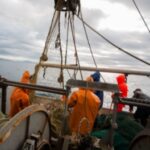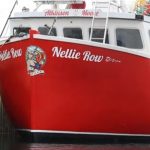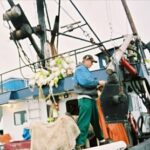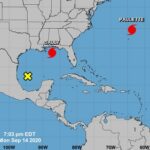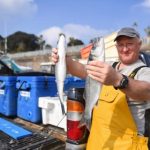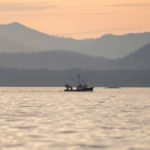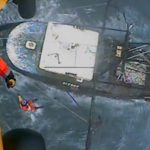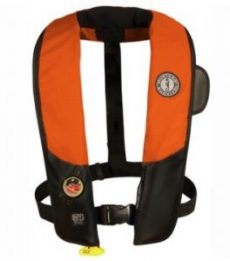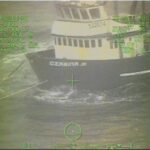Tag Archives: Jason Spingle
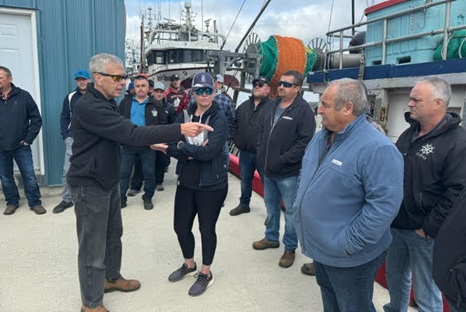
Call for Changes to Gulf of St. Lawrence Redfish Fishery Management, Inshore Fleet Demands Immediate Action
The 4R inshore fleet is calling on the Department of Fisheries and Oceans (DFO) to implement immediate changes to the management of the Gulf of St. Lawrence Unit 1 Redfish Fishery. Dozens of harvesters rallied outside the Barry Group plant in Curling today as members look to the federal government for urgent changes to access the small, time sensitive fishery. “DFO has not established harvest control rules that allow for a sustainable fishery for the 4R fleet, despite the critical importance of this resource to local communities,” explains Jason Spingle, FFAW-Unifor Secretary-Treasurer. “Minister Lebouthillier’s decision to allocate the majority of the fishery to the corporate dragger fleet has left the inshore fleet struggling to survive, and current rules mean they cannot access the small bit of quota do they have,” Spingle says. more, >>CLICK TO READ<< 14:09
Storm Brewing over French Halibut Fishery in Atlantic Canada
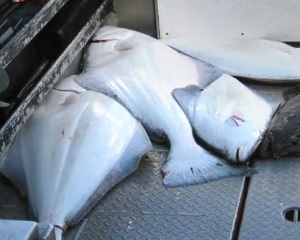 The Canadian halibut industry is accusing France of seeking an exorbitant share of the fishery in negotiations with Canada on quotas for the valuable groundfish that migrate across the jurisdictions of both countries. Canadian fishermen from Nova Scotia to Nunavut would be the losers if France prevails, said Bruce Chapman, executive director of the Atlantic Halibut Council, representing both inshore and offshore Canadian harvesters. French territorial waters extend into the Atlantic from the islands of Saint Pierre and Miquelon, 25 kilometres from the southern coast of Newfoundland and Labrador. more, >>CLICK TO READ<< 06:41
The Canadian halibut industry is accusing France of seeking an exorbitant share of the fishery in negotiations with Canada on quotas for the valuable groundfish that migrate across the jurisdictions of both countries. Canadian fishermen from Nova Scotia to Nunavut would be the losers if France prevails, said Bruce Chapman, executive director of the Atlantic Halibut Council, representing both inshore and offshore Canadian harvesters. French territorial waters extend into the Atlantic from the islands of Saint Pierre and Miquelon, 25 kilometres from the southern coast of Newfoundland and Labrador. more, >>CLICK TO READ<< 06:41
Canada opens personal-use mackerel bait fishery, extends commercial moratorium
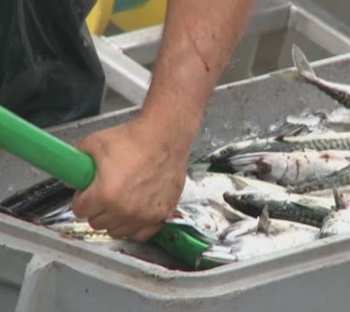 Canada is opening a personal-use bait fishery for mackerel this spring while extending the moratorium on commercial mackerel fishing in Atlantic Canada and Quebec in 2024. Fish caught under a bait licence are intended for personal-use and cannot be sold, traded or bartered. The Department of Fisheries and Oceans said in a news release Thursday the bait fishery will help licence holders supply their other fisheries, such lobster, with bait without jeopardizing the ongoing rebuilding of the stock. The 470-tonne bait quota will be released in two parts to allow fishermen in different parts of the region equitable access. Mackerel arrive in different parts of the region at different times — first off southern Nova Scotia and later in Newfoundland and Labrador. more, >>CLICK TO READ<< 14:42
Canada is opening a personal-use bait fishery for mackerel this spring while extending the moratorium on commercial mackerel fishing in Atlantic Canada and Quebec in 2024. Fish caught under a bait licence are intended for personal-use and cannot be sold, traded or bartered. The Department of Fisheries and Oceans said in a news release Thursday the bait fishery will help licence holders supply their other fisheries, such lobster, with bait without jeopardizing the ongoing rebuilding of the stock. The 470-tonne bait quota will be released in two parts to allow fishermen in different parts of the region equitable access. Mackerel arrive in different parts of the region at different times — first off southern Nova Scotia and later in Newfoundland and Labrador. more, >>CLICK TO READ<< 14:42
NL Harvesters Say Thanks For Nothing, Bait Fishery Slap in the Face to License Holders
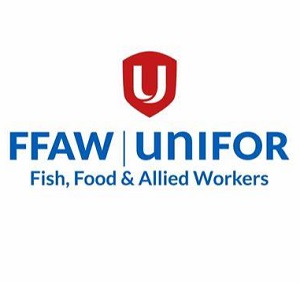 This morning, the federal government announced a bait fishery for Atlantic mackerel in Atlantic Canada and Quebec. A bait fishery for mackerel will do nothing for harvesters in Newfoundland and Labrador, and harvesters are demanding a modest directed commercial quota for the province. “Newfoundland and Labrador has a history of a fully monitored directed fishery that provided top quality product in a traditionally fall fishery. FFAW-Unifor’s proposal for a directed fishery with temporal coverage would bridge the existing information gaps,” says FFAW-Unifor Secretary-Treasurer Jason Spingle. “Moreover, today’s release is not clear what portion Newfoundland and Labrador harvesters would receive and when,” Spingle says. more, >>CLICK TO READ<< 13:36
This morning, the federal government announced a bait fishery for Atlantic mackerel in Atlantic Canada and Quebec. A bait fishery for mackerel will do nothing for harvesters in Newfoundland and Labrador, and harvesters are demanding a modest directed commercial quota for the province. “Newfoundland and Labrador has a history of a fully monitored directed fishery that provided top quality product in a traditionally fall fishery. FFAW-Unifor’s proposal for a directed fishery with temporal coverage would bridge the existing information gaps,” says FFAW-Unifor Secretary-Treasurer Jason Spingle. “Moreover, today’s release is not clear what portion Newfoundland and Labrador harvesters would receive and when,” Spingle says. more, >>CLICK TO READ<< 13:36

“We got ‘er done” – Fish harvesters reach deal with N.L. government to allow catch to be sold to outside buyers
John Efford Jr. fought back tears as he announced the news to hundreds of fish harvesters standing before him — they’d struck a deal with the Newfoundland and Labrador government to end days of protests. According to Efford — the de facto protest leader — and members of the fisheries union, the provincial government has agreed to let fish harvesters sell their catch to buyers from outside the province, regardless of species. They also said they have commitments on moving caps on processing to promote competition within the industry. “We got ‘er done,” Efford told reporters afterward. “Free enterprise for every species.” more, >>click o read<< 13:22

Newfoundland and Labrador crab fishery grinds to a halt as harvesters protest prices
It’s peak crab season in Newfoundland and Labrador, but hundreds of fishers spent Monday morning on land, hoisting fists and signs in the air outside the provincial legislature to protest what they say is an unlivable price for snow crab. Some in the crowd said they would much rather be out on the water than protesting. But harvesters are refusing to fish this season after prices were set at $2.20 per pound, a price they say favours fish processors over those who catch the fish. “Our money tree is the fishery of Newfoundland and Labrador, and it’s time for all Newfoundlanders and Labradorians to wake up, for that group of companies is stealing it out from under you!” yelled St. John’s fisher Glen Winslow, pounding his fist on the lectern at the top of the legislature steps. >click to read< 10:00
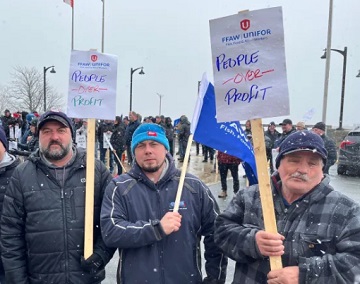
UPDATED: With their season on hold, fishermen protest low price of crab on the steps of the N.L. legislature
With the price of snow crab less than one-third of what it was a year ago, Newfoundland and Labrador’s fishermen are rallying on the steps of the provincial legislature Monday morning to demand government action on the province’s most lucrative fishery. Members of the Fish, Food & Allied Workers union say they can’t afford to fish crab at the $2.20 per pound set earlier this month. Fishing season is open, but harvesters are keeping their boats docked in the hopes of getting a higher price. >click to read< with live stream feed.
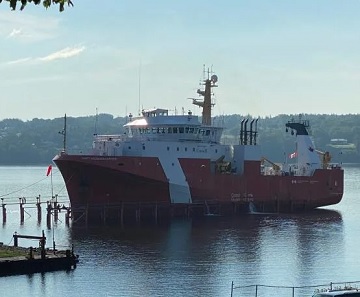
Fall fish stock surveys won’t happen again
The Department of Fisheries and Oceans says 2022 will be another year without fish stock surveys, as it prioritizes transition work needed to replace older vessels in an aging fleet. The scientific surveys are used to assess the health of major fish stocks and are critical in determining quotas for commercial fisheries worth hundreds of millions of dollars in Atlantic Canada. Those inside the industry say DFO is falling short on their mandate and can’t make the most informed decisions on future quotas due to the limited data. >click to read< 07:33
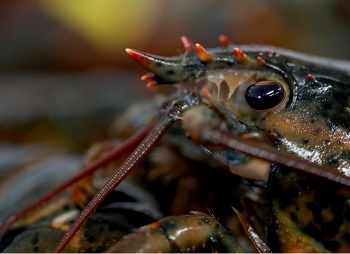
North Atlantic Right Whale not impacted by NL lobster, snow crab fisheries
“The justification for the new “avoid” rating does not reference any of this significant action by Canadian lobster fishery stakeholders, does not identify any pathway toward achieving a better evaluation and only tells the fishery to “do more”. The Canadian lobster sector is constantly working on solutions and will continue to innovate to protect the NARW. The new Seafood Watch rating tells us that Monterey Bay Aquarium is not working collaboratively to help fisheries improve.” “It’s really not even a Canadian problem. The species spends more of its time in American waters, but I think harvesters in the United States have done a lot to mitigate the impacts out that way. There is no evidence that these fisheries are impacting the recovery of the right whale overall. There’s a lot of other factors that are impacting it, but it’s not these fisheries. I hope consumers will look into this and see that is the case.” >click to read< 09:45

Fiona Leaves Wake of Devastation for Inshore Harvesters
The damage left in Fiona’s wake has impacted multiple enterprises, leaving significant damage to gear, boats, motors, and sheds. FFAW-Unifor is seeking financial support from federal and provincial governments to assist these inshore harvesters in their rebuilding efforts. “The damage from Fiona has been felt in particular by folks located between La Poile and Port aux Basques. Some inshore harvesters have lost all their gear, motors, boats, and sheds – just washed away with the storm. As small-scale operators, they have no financial recourse through traditional insurance channels and we are therefore asking for financial relief from our federal and provincial governments,” explains FFAW-Unifor Secretary-Treasurer, Jason Spingle. >click to read< 10:17
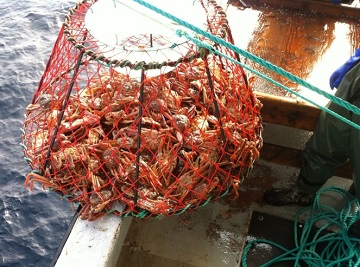
FFAW, N.L. government team up in push back against lobster, snow crab being labeled foods to avoid
Monterey Bay Aquarium’s Seafood Watch program which runs what it calls a science-based seafood recommendation list to inform consumers, chefs, and business professionals, placed all Canadian lobster and snow crab on an “avoid” list because of what the group calls a potential impact for North Atlantic right whales to become entangled in fishing gear. But Jason Spingle, secretary treasurer of the Fish, Food and Allied Workers (FFAW), says the snow crab and lobster recommendation is “totally unfounded.” Spingle said of the hundreds of harvesters he has heard from, none have actually seen a right whale while fishing. What’s more, Spingle said, he only knows of two sightings in Newfoundland waters, neither during lobster fishing season and zero reports of entanglements. >click to read< 07:37
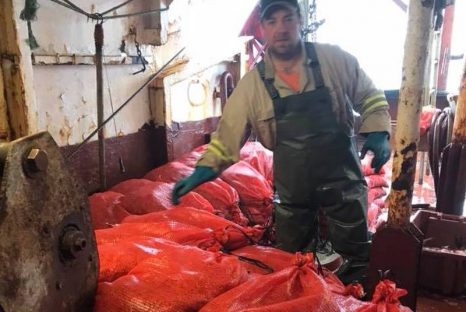
Phenomenal catch rates – Northern Peninsula harvesters and union rep calling for shrimp policy change
Shrimp harvesters across area 5-12 of the 4R zone are still seeing phenomenal catch rates. Many fishermen, including Jason Spence of Port au Choix, are now expecting to have their quotas caught by the end of May. “I got 314,000 pounds of shrimp to catch and I’m going to have that caught in four weeks,” said Spence. “That’s not something we’ve seen in six or seven years.” As reported in an initial Northern Pen story, Anchor Point harvester Roland Genge and others credit this success to a policy established by the fishers in the 4R region to not catch shrimp in April – despite the Department of Fisheries and Oceans (DFO) policy to open the fishery on April 1. >click to read<11:57



































